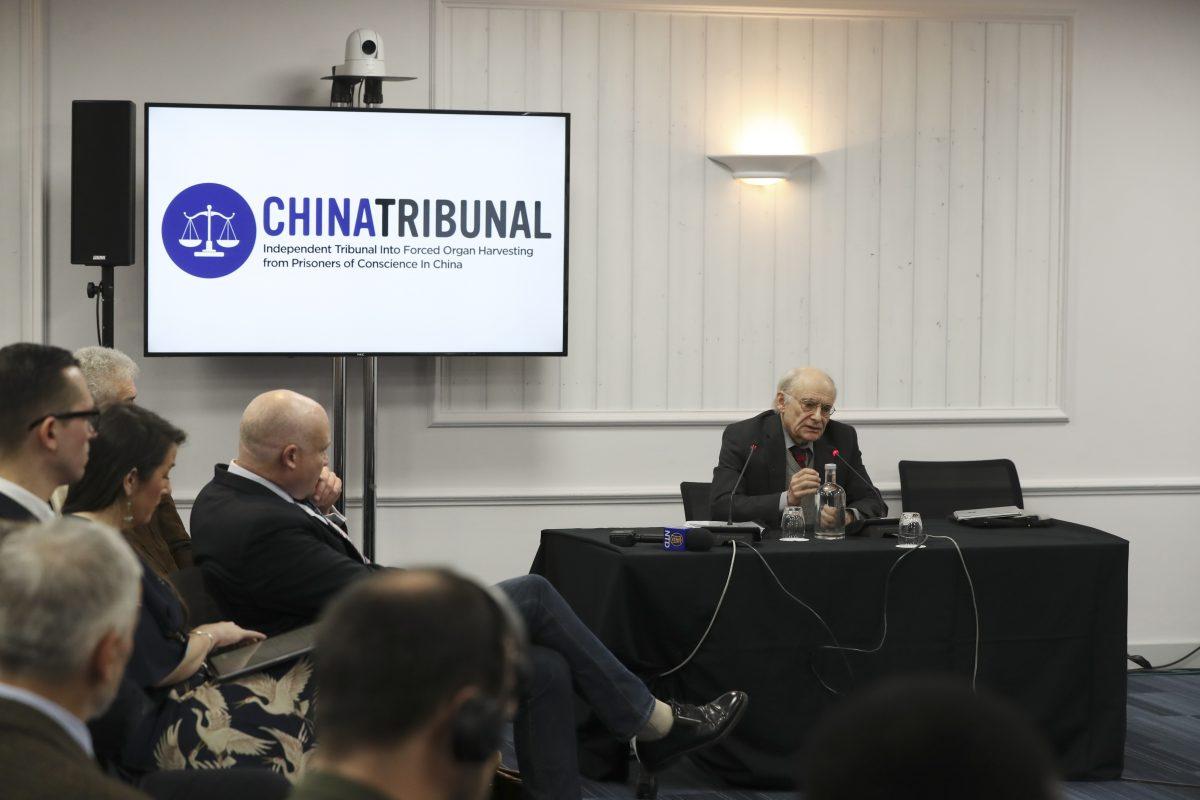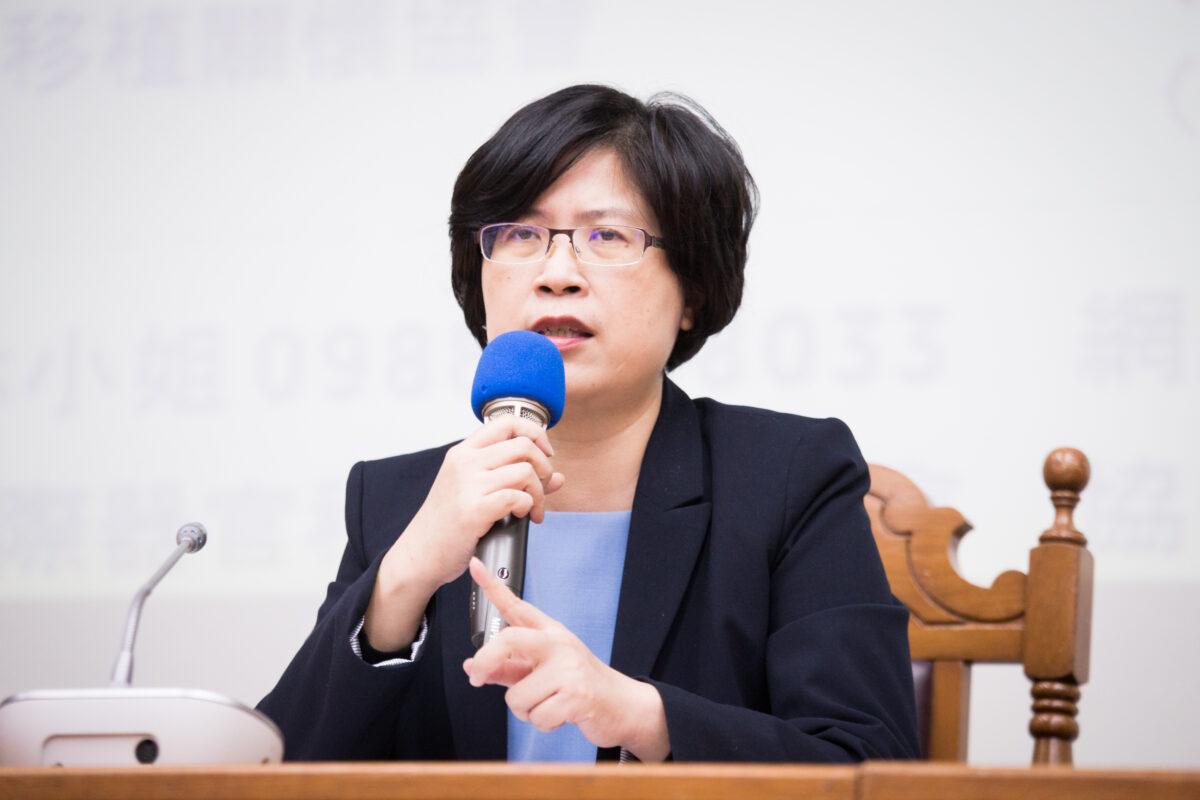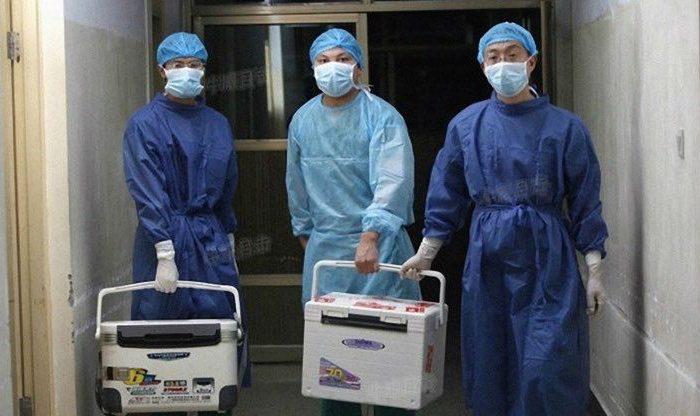“The legal profession is called upon to enact an end to this unacceptable crime against humanity,” the summit website reads.
Changes to commercial relations are also required, according to Dr. R. Scalettar, former chair of the American Medical Association.
“There should be no conflicts of interests such as payments for and commercialization of transplants,” he said.
Such conflicts can be banned by legislation at the national and international levels.

“The CCP dictatorship moves very well, either by buying people’s will, or by bribing people’s will, or by threatening people’s will,“ he said. ”And it can do that with a small group, but it cannot do that with millions of people, who are the brave ones who must speak out.”
For Jimenez, silence is complicity.
“Justice, in the future, will not only judge those who are guilty of these crimes, but also all those people whose complicit silence has facilitated, made it possible for all these atrocities to take place,“ he said. ”They will have to answer to justice.”
“The UDCPFOH builds on the foundation of inalienable rights which cannot be deprived by any person or regime and lays bare the core principles to the universal values, including the inviolability of human dignity and the fundamental protection for human life, body, and freedom,” Chu said.
“All governments shall urge the Party-State of China to cease the repression, imprisonment and mistreatment of Falun Gong practitioners and any other prisoners of conscience; to cease the forced organ harvesting of all prisoners; to open all detention centers and camps for free and independent international investigation of the crime of forced organ harvesting,” the article reads.

Chu recommended the enactment of a “Universal Act Against Forced Organ Harvesting.”
U.S. sanctions could ban anyone complicit in forced organ transplants from entering the United States. This has more effect than normally acknowledged, Chu pointed out. She cited statistics that in 2017, 85 percent of high-ranking officials in China were preparing for an overseas escape. Between 1995 and 2008, she said that more than 18,000 Chinese officials fled China and smuggled out $145 billion.
“Thus freezing their overseas assets and banning them from entry into overseas countries can be a significant threat to them,” she said. “It means involvement in the human rights abuse like forced organ harvesting could be a big risk for their future.”
“Those efforts have not succeeded yet, and it may be because of relationships with the perpetrator of this crime,” Hoffman said. “That relationship [is] an economic tie with many nations, that ... some wish to treat gently, as horrific actions exist in international and intentional silence, so that [only] a few know what is happening.”
Gattolin explained that in France, “when one questions the forced removal of organs in China, one quickly runs the risk of being labeled as heavily anti-communist or anti-Chinese.” He said that raising this “almost taboo” question exposes oneself to “scathing and outraged denials and sometimes even to threats of commercial or political retaliation from Beijing.” He called the result a “diplomacy of silence.”
To overcome this silence, several measures are needed. First, there must be public education about the reality of forced organ harvesting in China, and how it’s focused against Falun Gong practitioners. Second, democracies and their allies must enact tougher legislation against domestic cooperation with global transplant abuse, including through stronger laws against transplant tourism.
Third, Magnitsky sanctions need to be imposed on the individual leaders and transplant surgeons involved in initiating and executing forced organ harvesting. These sanctions should include those at the top of the CCP hierarchy, including all members of the Politburo Standing Committee of the CCP. Fourth, international economic sanctions should be imposed against the Chinese economy as a whole in order to stop what should be considered a medical genocide for profit. And fifth, governments around the world should make a concerted effort to publicly recognize and assist the victims and families affected by this most shocking case of transplant abuse.





